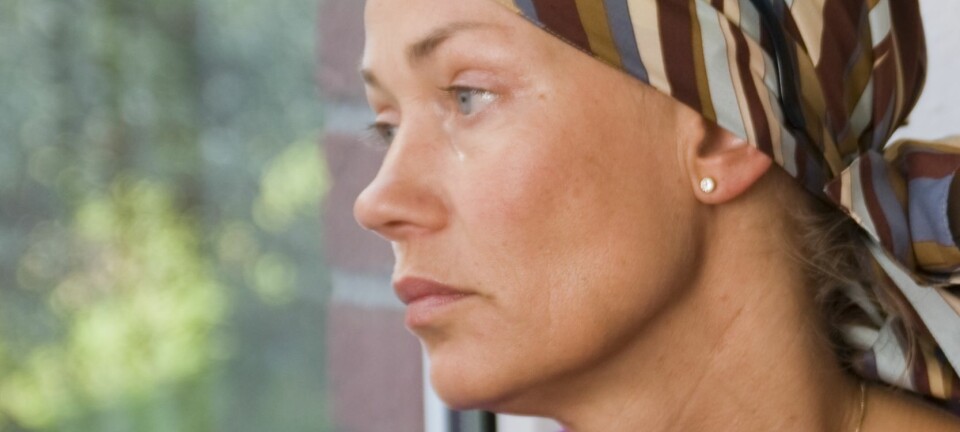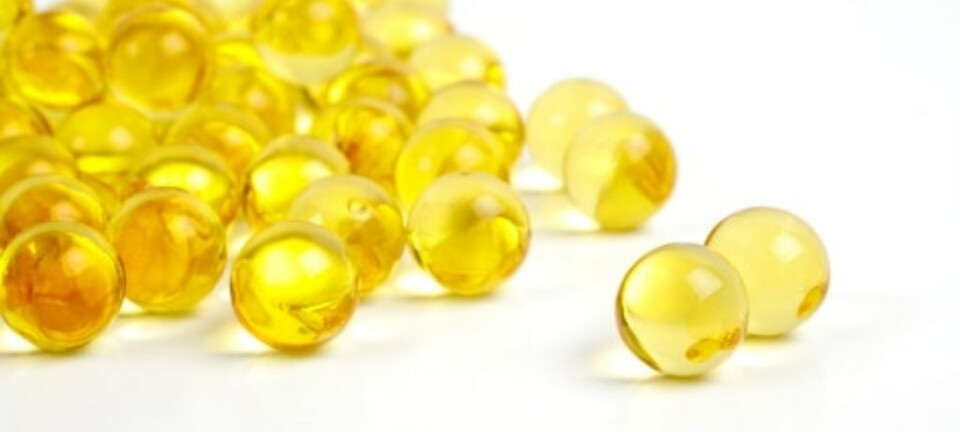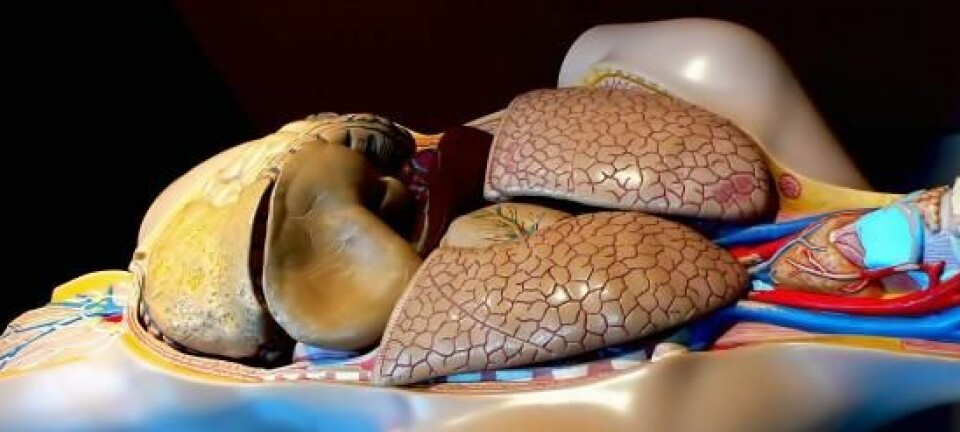
Chronically ill are major consumers of alternative medicine
Half of questioned patients turned to alternative treatments to improve their health, study shows.
Many patients with chronic illness are so eager to improve their health that they tend to spend money on reflexology, nutritional supplements, natural medicine and other alternative treatments that have had no documented effects so far.
Around half of the Danes that are struck by MS turn to alternative methods to improve their health, new study shows.
“A lot of our members use them as a supplement to conventional treatments to make it easier to live with their illness. They feel that alternative treatments can optimise their health,” says Lasse Skovgaard, Ph.D, from the Danish MS Society.
Alternative means of improving health
Skovgaard has just defended his thesis, in which he examined around 2,000 MS patients’ use of alternative treatments.
In his questionnaire, around half of the respondents said that they had turned to some form dietary supplement, physical treatment or natural medicine that had not been approved as medicine.
“When they turn to the world of alternative medicine it’s not necessarily because they don’t have confidence in the conventional health care system or that they are hoping to be cured.”
“Rather, they do it to strengthen their body and mind. Many use alternative methods to improve their overall health and strengthen their entire organism,” says Skovgaard.
Rheumatoid arthritis patients love alternative treatments, too
It’s not just MS patients that use alternative treatments. Previous studies show that patients with other chronic illnesses, such as rheumatism, are also fervent users of alternative methods.
In 2010 a study from the Danish National Institute of Public Health showed that 32.8 percent of Danes suffering from a muscular- or skeletal disease such as rheumatism had used alternative treatments with physical contact such as acupuncture and reflexology in the past year.
In 2011, 94 percent of respondents in an online survey carried out by the Danish Rheumatism Association stated that they had used dietary supplements or natural medicine within the past year. Only around half of the respondents stated that they always discussed their use of alternative treatments with their doctor.
“When you suffer from a chronic illness, you’re willing to go very far to improve your condition, so many of our members enquire about options such as dietary supplements and natural remedies,” says Henriette Thorseng, a research associate with the Danish Rheumatism Association.
“Based on the studies we have carried out, we try to give neutral information about their effect. We also advise people about anything they should be aware of and we recommend that they inform their doctor about any alternative treatments they use,” she says
No documented effect
However, both doctors and patients’ associations can find it hard to give clear answers about what works and how, because so little documented evidence exists about the effects of alternative treatments on health.
“We’re in desperate need of knowledge about what is actually going on. The effect of what our members do in their everyday lives, i.e. combining different types of alternative treatments with conventional medicines to strengthen the entire organism is not examined,” says Skovgaard.
Need for new ways of testing
The problem is that the traditional methods that are used to test medicines are not always suitable for testing whether the chronically ill patients are getting the effect they are hoping for from the alternative treatments they are using. The methods used to test the effect of medicines primarily document whether a specific medicine works for a specific symptom such as spasms or pain.
However, as many MS patients do not use alternative methods to relieve a symptom, but rather to strengthen their immune system or entire organism overall, the methods are rarely suitable for documenting whether the alternative treatment has the desired effect, says Skovgaard.
“There are two types of studies that would be useful to carry out in order to gain more knowledge about this area. Studies that test the effects that various alternative treatments have on the immune system could indicate whether alternative methods really have the restorative effect that patients hope for,” he says.
“And epidemiological studies, where patients’ use of various alternative remedies are registered over a long period of time alongside the recording of a number of biological variables that concern their overall health and not just a specific symptom.”
Scientists have tried before
Between 2008 and 2010 Danish scientists actually did try to test scientifically whether alternative methods of treatment have an effect on MS patients’ immune systems. By measuring immunological markers in blood tests from a group of patients who had used various types of alternative treatments the scientists attempted to uncover whether alternative treatment had a positive effect on the immune system.
Professor Mogens Claesson and PhD Nanna Ny Kristensen from the Department of International Health, Immunology and Microbiology at the University of Copenhagen were responsible for carrying out the immunological tests.
“We were hoping to find biological markers that stood out, so we collected blood samples and analysed plasma to see whether the levels of the hormones cytokines and chemokines in the blood changed after the patients had used alternative treatments,” says Claesson.
“Cytokines and chemokines are inflammation markers, and if the levels in the blood changed it would indicate that alternative treatment does have an effect on the course of the MS,” he says.
Study turned out to be useless
However, the study had a number of weaknesses that were problematic enough to render the test results inadmissible:
-
The scientists had only used 100 microliters of blood from each participant. At the time their equipment was not advanced enough to carry out detailed measurements of such small amounts of blood.
-
Too few people participated in the study. There were 17 intervention participants and 15 control participants. It was only possible to obtain the necessary two blood samples from half of the control participants.
- The group of test participants was too mixed, as participants used, for instance, widely different types of alternative treatments.
“Nothing ever really came of it, even though we spent a lot of time collecting blood samples. Now that we’re talking about it, the frustrations I had during the study are coming back. One hundred microliters of blood was nowhere near enough to carry out the necessary cellular tests,” says Claesson.
“But we did gain valuable experience from it, and it would be interesting to repeat the experiment on a grander scale. Today there are many more horses to bet on than we had back then. For instance, we now have equipment that can measure many more parameters in small amounts of blood than back then.”
Few patients discuss alternative treatments with their doctor
According to Skovgaard, there is a dire need for implementing Claesson’s experiences to carry out a repetition of the clinical study on a grander scale.
“As a patients’ association we’re facing the dilemma that we lack documentation of what works -- we have very little documented evidence when it comes to the remedies and treatments our patients use in their everyday lives,” he says.
From a scientific point of view, says Skovgaard, the lack of evidence means it’s impossible to recommend alternative treatments -- but then again: there can’t be any evidence, when it’s not being studied.
“Only around half of MS patients who use alternative treatment have discussed it with their doctor -- often because they’re nervous that they’ll get a negative reaction. But doctors are ill equipped to discuss alternative treatments when there’s so little research on the subject.”
----------------------
Read the original article in Danish on Videnskab.dk
Translated by: Iben Gøtzsche Thiele










